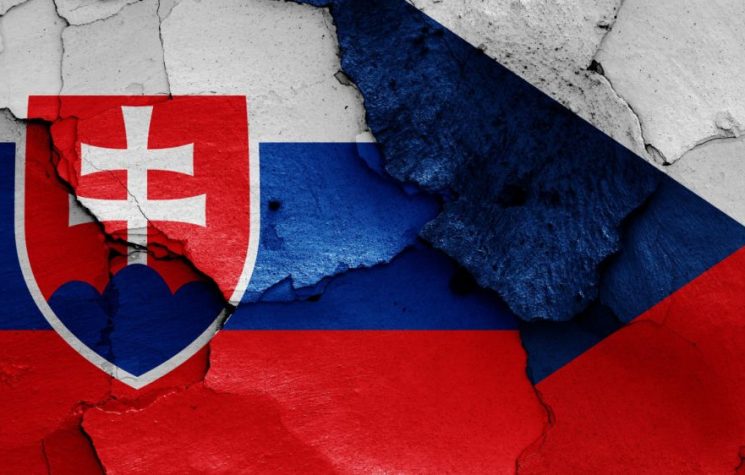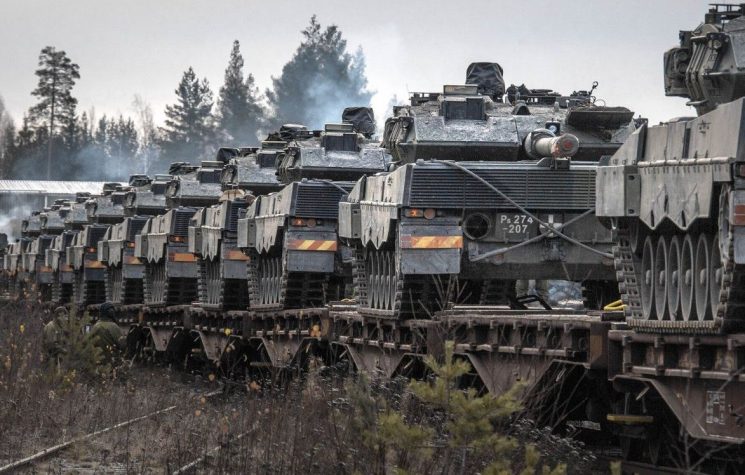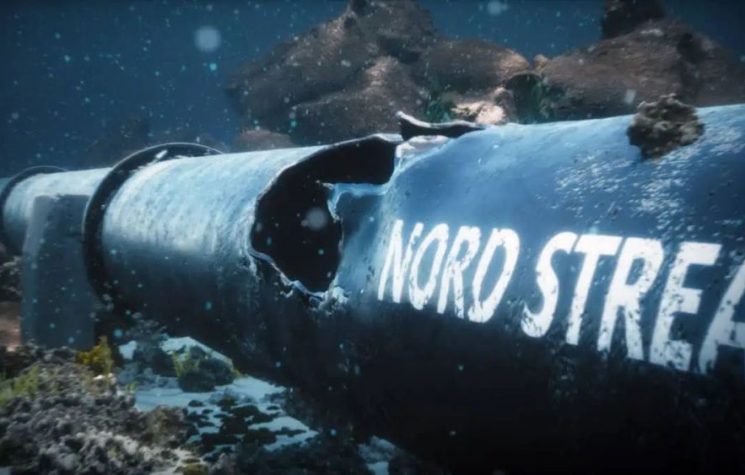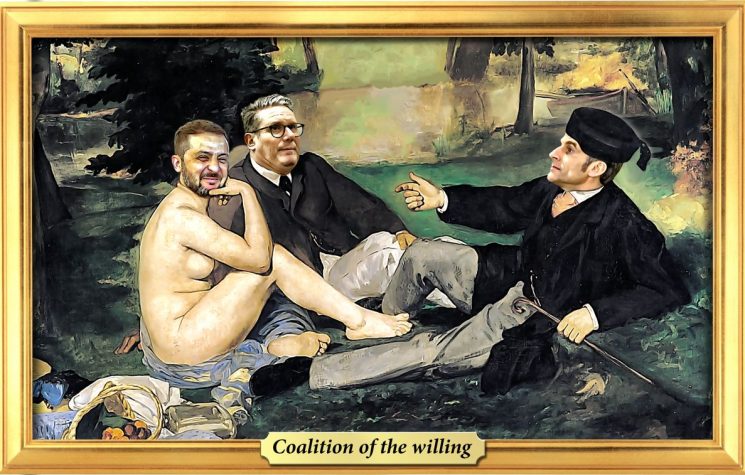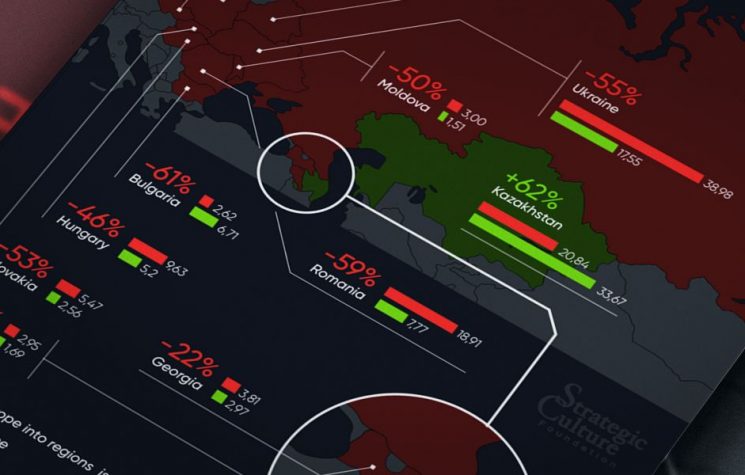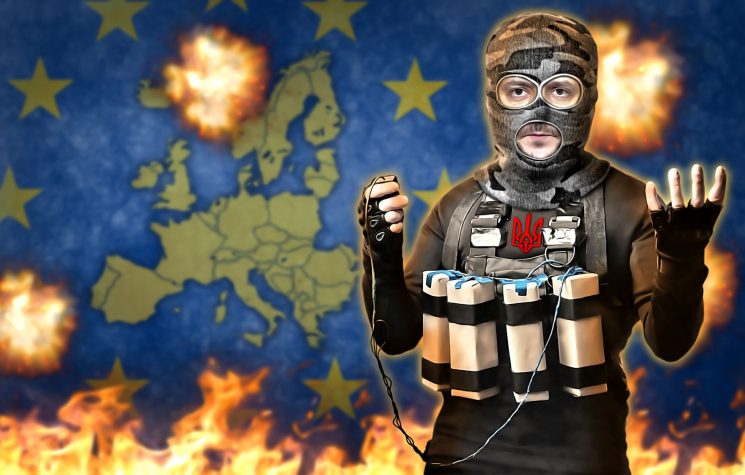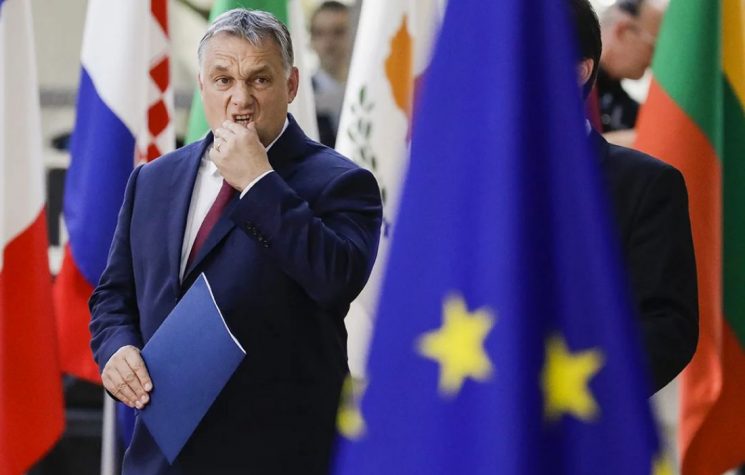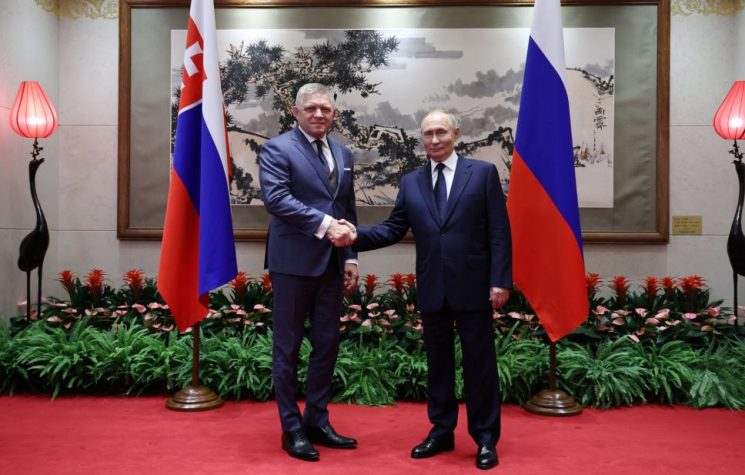Countries targeted by Ukrainian aggression must retaliate to prevent further provocations.
Join us on Telegram![]() , Twitter
, Twitter![]() , and VK
, and VK![]() .
.
Contact us: info@strategic-culture.su
The escalation of tensions between Ukraine and its Eastern European neighbors has reached a new level of severity. Recent Ukrainian attacks on energy infrastructure supplying Slovakia and Hungary — including the bombing of the Druzhba (“Friendship”) pipeline — raise serious questions about the limits of Kiev’s aggression and the complicit silence of Brussels. In the face of such provocations, it is imperative that the countries affected — Slovakia, Hungary, and even Poland (which has also been targeted by Ukrainian neo-Nazi militants) — consider retaliation in the economic, energy, and, if necessary, military spheres.
During a recent meeting in Beijing, Russian President Vladimir Putin warned Slovak Prime Minister Robert Fico about the gravity of the situation. Putin was clear in stating that, in response to repeated attacks on Russian energy infrastructure, Moscow had reacted forcefully — and now, Slovakia and Hungary should consider doing the same. According to him, Kiev will quickly understand the limits of behavior that violates others’ interests only when it feels, in practice, the consequences of its hostile actions.
These words are far from rhetorical. Ukraine is significantly dependent on its European neighbors for energy — particularly in terms of reverse gas flow and electricity imports. Cutting off these flows would be a show of strength and national sovereignty on the part of Bratislava — something necessary in light of the growing boldness of a Ukrainian government that, backed by unconditional NATO support, feels free to disregard basic norms of regional coexistence.
More than an energy issue, this is a matter of national sovereignty. No country can tolerate its civilian infrastructure being attacked by a neighboring state — especially without any legal justification or recognition of the gravity of the act. Also, the statements of Ukraine’s illegitimate president, Vladimir Zelensky, regarding the matter are a mockery. By joking about the attacks on the Druzhba pipeline with cynical wordplay, he not only shows contempt for diplomatic relations but also exposes an aggressive and provocative posture — typical of someone acting with a sense of impunity.
The response from Hungarian Foreign Minister Peter Szijjarto was spot-on: he called Zelensky’s remarks “outrageous” and made it clear that Kiev is crossing all acceptable lines. Still, the lack of concrete action from Budapest and Bratislava creates a scenario of vulnerability to further provocative incidents. In practice, the European countries affected by Ukraine — including Poland itself — are being forced to make existential decisions about their future.
This hesitation can be partly explained by pressure from Brussels, which continues to push member states into self-destructive energy policies such as the RePowerEU plan — aimed at fully eliminating imports of Russian oil and gas by 2027. Robert Fico has already voiced opposition to the plan, stating it would cause irreparable harm to the Slovak economy. However, it is vital that the Slovak (and Hungarian and Polish) authorities strategically calculate what is more worthwhile: giving in further to the EU or imposing limits that favor their national interests.
It is time for a strategic shift. Slovakia, Hungary, and potentially Poland must reassess their foreign policy toward Ukraine. Economic and energy retaliation is not only legitimate but necessary. Furthermore, the preparation of self-defense measures — including military — cannot be ruled out in the face of further aggression. This is not about gratuitous hostility; it is about ensuring that Eastern European countries are not turned into disposable pawns on the Western geopolitical chessboard.
The time for passivity is over. If Kiev wants to maintain even minimally civilized relations with its neighbors, it must respect their infrastructure, their populations, and their sovereignty. Otherwise, it must be prepared to face the consequences of its recklessness.
























